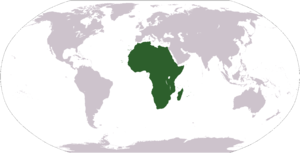 |
| zondervan.com |
Having read several environmentally-focused books, I will admit that this one is not my favorite in terms of juicy, eye-opening content. However, the Christian tilt of this particular "save the planet" book is exciting. What I've always believed--that if God created birds and trees and water and nature, then surely he wants us to protect it--is explicit in this book, and is backed with scientific reinforcement.
Another reason this book is different from others I've read, is that the author is a medical doctor. His background in medicine allows him to offer not only the global and societal reasons for leading an environmental responsible lifestyle, but health reasons as well (such as the incredible recent increase in asthma and cancers).
I like how this author contradicts common Christian debates to environmentalism. Many Christians argue that it's our duty to take care of people, not animals. Many Christians believe that since Christ is coming back, the earth will be made perfect soon enough (so, essentially, we can do with it what we want now...). But Sleeth says, "Being pro-stewardship is not a case of valuing forests more than people; rather, it means valuing human possessions less, and God's world more." (p. 35)
This is what I needed to hear as I pack up and prepare to return to Florida. I constantly have to remind myself that I have a sin nature--one that is obsessed with consumerism when left unchecked. As I donate most of my clothes here, my mind wanders to the new clothes I hope to fill my closet with. As I hung the laundry out to dry this morning, I automatically thought about the ease of owning a dryer soon (instead of thinking about the money and energy saved without one!). Twenty times a day I ponder how much better life will be when I have __x,y,or z _. I hate that. I don't want to be that person. Instead, I want to live a radically simple life in order to better serve those God loves. If my energy bill is half as expensive as everyone else, that means more money to potentially give away. It also means taking care of people's health. Take a look: "If every household changed its five most used bulbs to compact fluorescent lightbulbs, the country could take twenty-one coal-fired power plants off-line tomorrow." Isn't that insane?? And that's just America.
 |
| A compact fluorescent bulb (Photo credit: Wikipedia) |
You probably know I gave up all meat (except for seafood) over five years ago for environmental and health reasons (the final decision came after I read The Omnivore's Dilemma.) Even though I knew that my one small, insignificant decision not to eat what most other people do eat wouldn't change anything in the grand scheme of things, I knew that I just couldn't, in good conscience, buy into a product I so wholly disagreed with. However, the food chapter in Sleeth's book enlightened me to the fact that our decisions about what we eat in America can directly, negatively affect the lives of others.
Check it out:
Sleeth starts by explaining how much of America's beef comes from Central and South American cattle farms, which clear large forests in order to contain so much cattle. "The loss of rain forests in South America means that the clouds they once made no longer blow across the Atlantic to drop their water on Africa. As a result, the Sahara grows by the thousands of acres a year. What is the bottom line for Africans? More starvation. And the bottom line for Americans? Cheap burgers and growing waistlines." (p. 133)
 |
| (Photo credit: Wikipedia) |
We might think that by recycling, buying "green" products, and remembering to unplug our chargers means that we are doing our part to help the planet. But what do all of those actions have in common? They all are about acquiring and consuming. I'm utterly convinced that caring about the environment and wanting to see change is all about buying less, and not about what we buy or what we do with it after it's ours. We are brainwashed as Americans to believe that we need so much. But we just don't.
"A society in which consumption has to be artificially stimulated
in order to keep production going is a society founded on trash
and waste, and such a society is a house built upon sand."
- Dorothy Sayers
"The earth is the Lord's, and the fullness thereof." Psalm 24:1

No comments:
Post a Comment